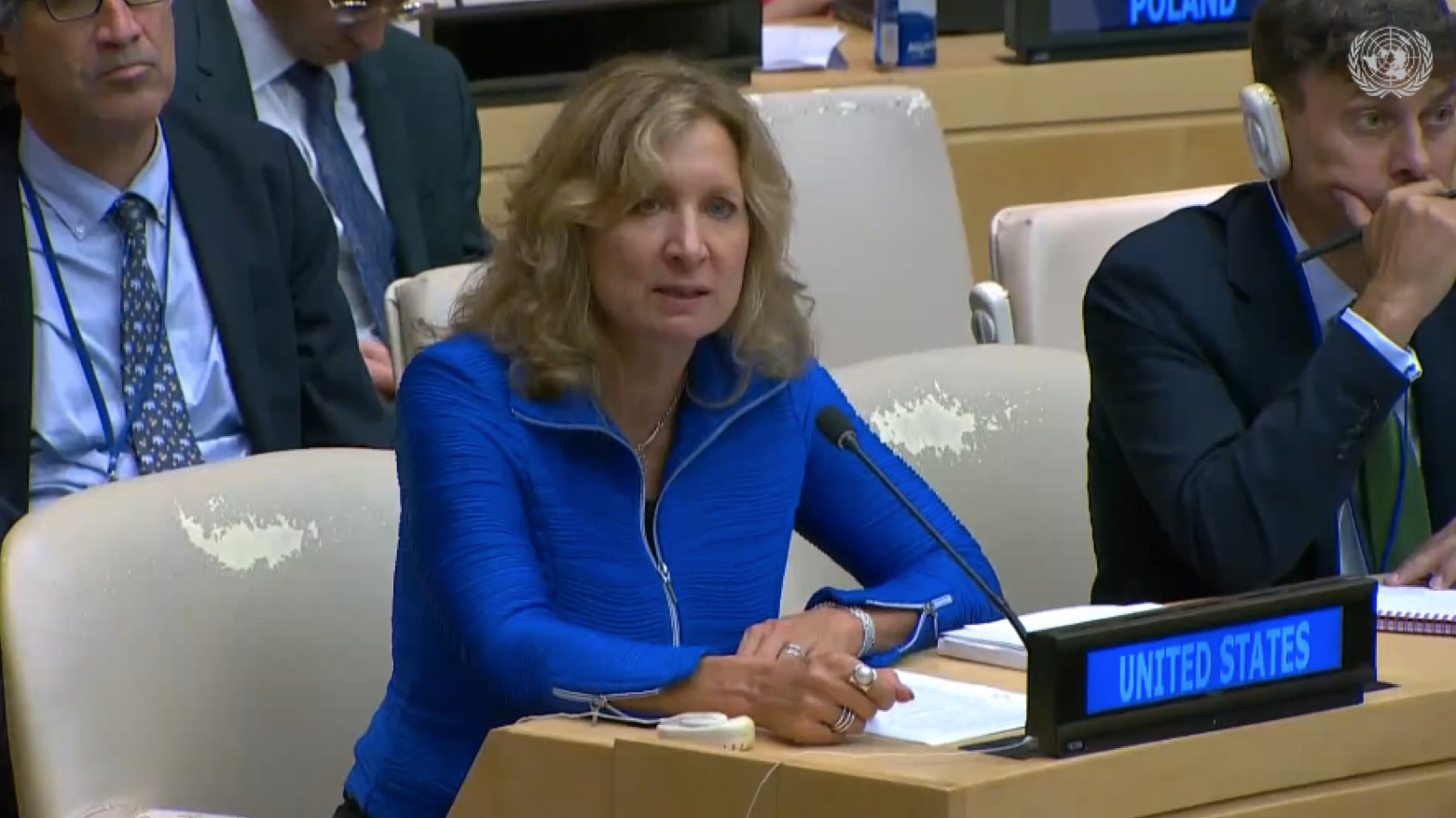Sinjar Agreement must be implemented by Baghdad and Erbil: US official

ERBIL (Kurdistan 24) – Beth Van Schaack, US Ambassador-At-Large For Global Criminal Justice of the Office Of Global Criminal Justice, told reporters on Tuesday that Baghdad and Erbil should “take steps to fully implement the Sinjar Agreement in consultations with Yezidis and other Sinjaris.”
She underlined that both the Kurdistan Regional Government (KRG) and the Iraqi government should “address security, administrative, and reconstruction needs within Sinjar so that displaced community members can return to their ancestral homes.”
The Sinjar Agreement was signed in Oct. 2020 between Erbil and Baghdad with support from the UN to normalize the situation in Sinjar and facilitate the return of thousands of Yezidis in displacement camps.
Read More: U.S. Calls for implementation of Sinjar Agreement
However, so far the agreement has not been implemented, despite calls by the US and other countries to do so.
Moreover, she told Kurdistan 24’s Rahim Rashidi that there is “a special role for that regional government in helping to ensure the return of Yezidis and other displaced populations to their ancestral homes and ensuring the full, complete implementation of the Yezidi Survivor Law.”
“Most of the crimes that ISIS has committed were crimes – atrocity crimes, and yet the larger Iraq penal code does not include genocide crimes against humanity or a full range of war crimes that are available to be prosecuted,” she added.
Furthermore, Van Shaack called on Baghdad to enact a larger crimes against humanity, war crimes, and genocide act to enable those charges to be brought, and to enable UNITAD to support those charges with the evidence and information that it has collected.
So far, criminal cases that have been brought against ISIS members in Iraq have only generally involved crimes of terrorism. “So, UNITAD is not able to be particularly helpful in those terrorism cases,” she said.
“That’s why it’s important for Iraq, out of Baghdad, to enact a larger crimes against humanity, war crimes, and genocide act to enable those charges to be brought, to enable UNITAD to support those charges with the evidence and information that it has collected.”
Lastly, she said this will make sure that “the full range of crimes that members of ISIL (ISIS) stand accused of can be prosecuted in local courts.”
